
Lesson 1: Challenges in the fight against cybercrime
In the context of Vietnam promoting digital transformation in all fields, cybersecurity has become a strategic pillar - playing an essential role in ensuring sustainable development, maintaining national stability, and protecting national sovereignty in cyberspace and the legitimate rights of all organizations and individuals.
However, the situation of cybercrime in Vietnam is at a red alert level, with countless scams and information distortions, causing huge economic losses and deeply affecting social life, the reputation of organizations, individuals as well as national security. Notably, there has been a situation where foreign criminals collude and entice Vietnamese people to operate high-tech fraud lines under the guise of "easy work, high salary", which increases the complexity of the investigation and requires closer international cooperation.
Meanwhile, Vietnam and many ASEAN countries still lack a common legal framework to keep up with the rapid changes in transnational cybercrime, causing difficulties in coordinating the handling of cases. Limited resources and human resources are also a significant challenge: domestic cybercrime prevention capacity is still inadequate, while the need for high-quality human resources is increasingly urgent.
At the Vietnam Security Summit 2025, Mr. Vu Ngoc Son - Head of Technology and International Cooperation, National Cyber Security Association, predicted that Vietnam will lack more than 700,000 specialized personnel in cybersecurity in the next 3 years. As a result, the number and severity of cyber attacks will increase, making it difficult for businesses and state agencies to operate digitally, while reducing the ability to proactively detect, analyze and respond to sophisticated threats.
To solve the human resource problem, Mr. Son proposed linking research institutes, schools and businesses, expanding training from high school to vocational colleges, using simulation platforms (Cyber Range), applying AI in operating network security systems, and building a professional standards framework. Businesses also need policies to attract and retain talent with competitive salaries, clear career paths and a flexible and creative working environment. This is the foundation to ensure the ability to prevent cybercrime in the context of a serious shortage of high-quality human resources.
To gain an advantage in cyberspace, it is necessary to mobilize the combined strength of the entire political system and the entire population. The movement “All people protect national security” needs to be strengthened, each citizen becomes a “soldier” on the digital front – actively denouncing crimes, warning the community and complying with regulations on cyber security. Only with the joint efforts from the central to the grassroots level, Vietnam will be able to build a safe, healthy cyberspace and serve the sustainable development of the country.
Strengthening and modernizing specialized forces is a top priority. Therefore, it is necessary to strengthen training and fostering of officers and soldiers in cutting-edge technology fields such as cyber security, artificial intelligence, big data; at the same time, promote international cooperation and joint training with leading countries and technology corporations. At the same time, modernizing equipment and technology for law enforcement forces is an urgent requirement - from data encryption systems, firewalls, anti-virus software, to advanced intrusion detection tools.
Public awareness raising also needs to be continuously promoted. Educational content must focus on new cybercrime techniques, skills to recognize and prevent fraud, as well as disseminate legal knowledge on information security. Every citizen needs to know how to protect personal information, use strong passwords, and verify news before sharing. To deal with fake news, it is necessary to build a network to detect and handle bad and toxic news from the central to local levels.
Vietnam has actively cooperated with many partners such as the US, EU, South Korea, and Israel in exchanging experts and receiving technical support. To further advance international cooperation, it is necessary to build common agreements and legal mechanisms to investigate and extradite international cybercrimes, and at the same time take advantage of multilateral forums such as ASEAN, the United Nations, and the Global Cyber Security Forum.
Completing the domestic legal framework is an important foundation. It is expected that the new Cyber Security Law project - merging the 2015 Cyber Security Law and the 2018 Cyber Security Law - will overcome contradictions and overlaps in implementation. The application of the VNeID electronic identification account as "cyber identity" helps to clarify user identities, connect with the national database to eliminate virtual accounts, junk SIMs and limit favorable conditions for criminals.
Cybercrime is increasingly sophisticated, exploiting greed, fear and curiosity. Common tricks include impersonating police agencies, banks, post offices; defrauding investors in stocks, virtual currencies, foreign exchange; hijacking social media accounts; using AI, Deepfake - technology to fake images, videos or sounds using artificial intelligence, making them look real. Luong Tam Quang - Minister of Public Security once warned that the consequences of fake news, false news are unpredictable and threaten the economy, society and national sovereignty.
People's awareness and vigilance are the biggest weaknesses in this fight. Although the authorities have continuously propagated, there are still many victims who fall into the trap due to ignorance and gullibility - especially the elderly, children and housewives. The fight against cybercrime is a long-term battle, requiring comprehensive and synchronous solutions and, most importantly, mobilizing the strength of the entire people and the political system.
Lieutenant General, Permanent Vice President of the National Cyber Security Association Nguyen Minh Chinh assessed that any loophole in cyber security is dangerous, with unpredictable consequences. Subjects can steal data, encrypt or sabotage information systems, attack for ransom; fake news spreads quickly thanks to new technology; individuals or KOLs influence public opinion with false information. High-tech crime activities are complicated with many acts such as stealing personal data, fraud, buying and selling weapons, explosives, and drugs. (To be continued)
Cybersecurity in the Digital Age - Final Article: Strategic Weapons of Digital Enterprises
Source: https://baotintuc.vn/kinh-te/an-ninh-mangtrong-ky-nguyen-so-bai-1-20251022101435929.htm




![[Photo] Prime Minister Pham Minh Chinh chairs meeting on nuclear power plant construction](https://vphoto.vietnam.vn/thumb/1200x675/vietnam/resource/IMAGE/2025/10/22/1761137852450_dsc-9299-jpg.webp)

















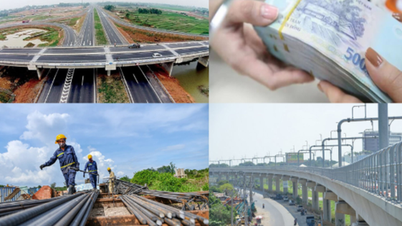
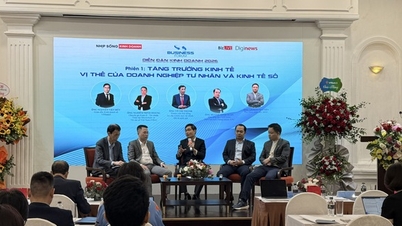








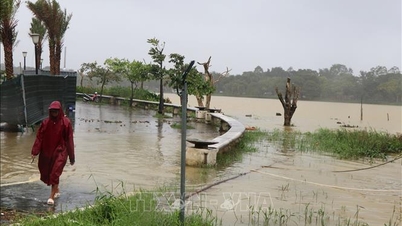
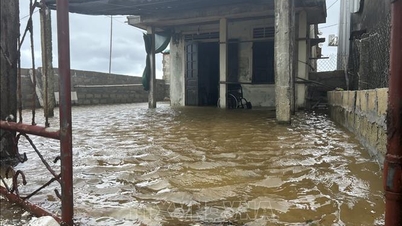
















































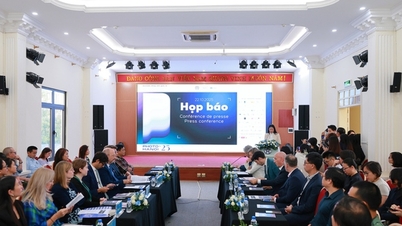











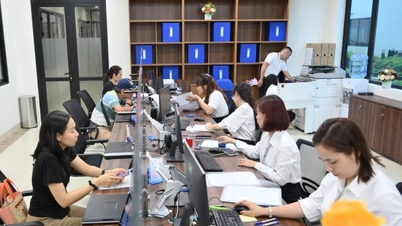
















Comment (0)